#Cameron McHarg
Text
I'm super honored to be asked to be the Head Remote Chair of the film jury of this insanely good festival.
It's curation consists of the best award winning short films from the top festivals around the world, and the talent in it is jaw-dropping and inspiring.
"The Jury Chairs for this year's 24fps International Short FIlm Festival have been announced.
REMOTE--CAMERON MCHARG: Cam is an actor and director and film graduate from Art Center College of Design in Pasadena, where he was a shortlisted winner of the Cannes Young Director Award. His short films have seen success around the international film festival circuit and have garnered several best actor and best of fest awards.
He can currently be seen playing Dave Greenfield in the feature film Spaghetti Junction, now streaming on Amazon Prime Video. His latest project (ZERO) was shot in Dakar, Senegal and is due to premiere early in 2024."
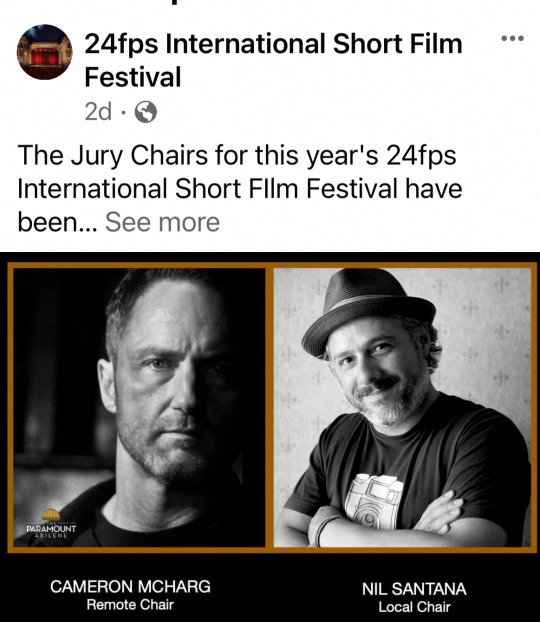
#film#cam mcharg#cameron mcharg#independent film#movie#indie film#short film#film festival#film festival jury
0 notes
Text
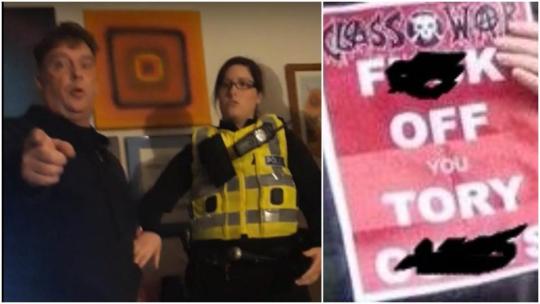

I wanted to include some real scenarios where these laws have been used to suppress people in the UK, to show how genuine of an issue this is:
David McHarg was arrested twice because of a poster that was displayed at his door which wrote: “Fuck off you Tory cunts”.
David Hoffman placed a poster of David Cameron containing the word "wanker" in his window has described how police handcuffed him in his home on election day, threatened him with arrest, and forcibly removed what they said was offensive campaign literature.
Chelsea Russel, A teenager who posted rap lyrics which included racist language (The N word) on Instagram, mourning the death of a friend, was found guilty of sending a grossly offensive message by a public communication. She was given an eight-week community order, placed on an eight-week curfew and told to pay costs of £500 and an £85 victim surcharge.
0 notes
Text
Blood Reaper - USA, 2004
Blood Reaper – USA, 2004
‘The legend has just become a bloody reality…’
Blood Reaper is a 2004 American slasher horror feature film directed by Lory-Michael Ringuette (Tele-Zombie) from a screenplay co-written with Douglas Hensley and Michael J. Stewart. The movie stars Cameron McHarg, Alison Moon, Jerri Badenhop and Mark Siegel. Former ‘Scream Queen’ Brinke Stevens has a cameo role.
Plot:
Jim (August Hanks) is driving…
View On WordPress
#2004#Alison Moon#Blood Reaper#Brinke Stevens#Cameron McHarg#film#horror#Jerri Badenhop#Lory-Michael Ringuette#movie#review#reviews#slasher
1 note
·
View note
Photo
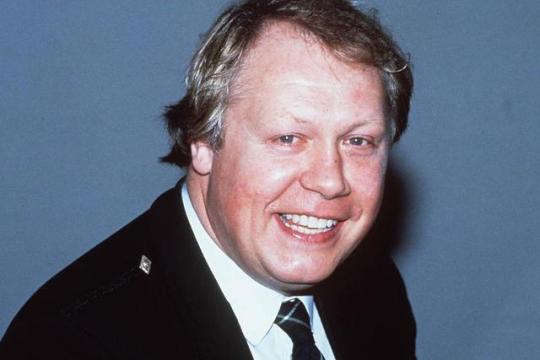
The rugby player and commentator Gordon Lamont Brown was born on the 1st November 1947.
Known quite simply as Broon fae Troon, Brown was from a sporting family, his elder brother Peter also played for and captained the Scottish side. His father, John played goalkeeper for the Scottish football side and also appeared in the Scottish Open at Royal Troon alongside golfing greats such as Arnold Palmer. He is also the nephew of footballers Tom and Jim Brown.
Broon was a legendary Scotland second row and a fully-paid up component of the Mean Machine; a triple Lion and fierce competitor in the Battle of Boet Erasmus; a ruthless assassin on the pitch and a true gentleman off the field of play.
early interest was in the round rather than the oval ball. His conversion was reportedly the result of a particularly heated football tie, after which he reckoned ‘rugby would be safer’! He emerged on to the international stage in December 1969, from West of Scotland, having just turned 22.
After a winning debut against South Africa, he retained his place for the Five Nations opener against France. Dropped for the subsequent Wales match, he was replaced by brother Peter who revelled in breaking the news to Gordon. Peter was then injured in the match – and replaced at half-time by his younger sibling; the first occasion where a brother had replaced a brother in an international. When the Browns joined forces against England in 1970, it was the first time brothers had played together for Scotland since Angus and Donald Cameron in 1902.
Immovable in the scrum yet dynamic in the loose, Gordon went onto cement his place in Scotland’s front five of the early 1970s, the formidable Mean Machine that also featured Ian McLauchlan, Frank Laidlaw, Sandy Carmichael and Alastair McHarg. Between 1971 and 1976, Scotland lost just once at home, a narrow defeat to the All Blacks.
A giant of a man, both physically and figuratively, he formed a key partnership in the blue jersey with McHarg, winning 30 caps; in a Lions shirt, he was one of the world’s most ruthless competitors. Not only could he move but his outstanding handling skills resulted in eight tries on the Lions’ 1974 venture – including the brutal Battle of Boet Erasmus – a record for a forward. He played in eight Lions’ Tests between 1971 and 1977, playing a major part in the 1971 and 1974 victories. A string of injuries ended his career, but not before an infamous incident in a match between Glasgow and the North-Midlands, he was suspended for three months after getting into a fight with Allan Hardie, in which Brown chased Hardie, threw him to the ground and kicked him. Prior to this, Hardie had kneed Brown in the face and proceed to stamp on the open wound on Brown's brow after the initial attack went unnoticed by the referee. The suspension meant that he missed three internationals and was banned from training at any rugby club.
The hardest battle came two decades later, with the diagnosis of non- Hodgkin’s lymphoma. A battler to the end, he died in 2001, aged just 53
6 notes
·
View notes
Link
0 notes
Text
All about Cameron Mcharg : height, biography, quotes
How tall is Cameron Mcharg
See at http://www.heightcelebs.com/2016/03/cameron-mcharg/
for Cameron Mcharg Height
Cameron Mcharg's height is 5ft 9in (1.75 m)Cameron Mcharg is American actorBest Known For Movie: Family TreeHeight: 5ft 9in (1.75 m)Born: January 24, 1971 , Everett, Washington, United StatesFilmography: Frontier (2012), Sick (2012/III), The Turning Machine: Warning (2011), That's Tough (2010),...
#actor#american#cameron mcharg#celebrity height#film director#hollywood#celebheight#celebrity without photo
0 notes
Text
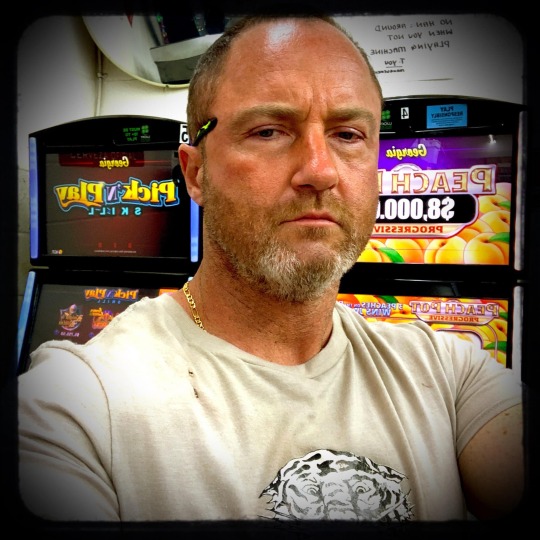
The director of SPAGHETTI JUNCTION wanted to make sure the makeup people made me extra sunburned and beat up and hungover.
I’m pretty sure they just walked over to him and said, “He’s good.”
#cameron mcharg#cam mcharg#indie film#independent film#behind the scenes#on set photos#spaghetti junction film#film#movie
0 notes
Photo
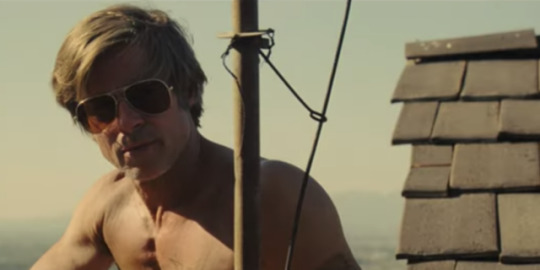
Some thoughts on, “Once Upon a Time in Hollywood”.
Once Upon a Time in Hollywood is essentially a comedy, but it’s also laments some things strongly that I felt were quite profound and needed to be expressed today.
Brad Pitt’s character really stood out for me.
I think there are some deeper reasons why his character seems to be hitting home and ringing true for people.
I actually remember guys like him when I was a little kid. They were everywhere. They were uncles and grandfathers and great uncles or boyfriends of my mom’s friends. They were the guys you brought your car to, they were out in driveways fixing their trucks, these were how most adults males were in my world. This is how working class American males basically looked and behaved. They had a quiet sense of doing what’s right and of being fair and square. Like Pitt’s character, they often had some kind of old blurry military tattoo(s) on their arm somewhere before tattoos were considered normal and acceptable. They sometimes also actually had some scars that they didn’t talk about. One step-uncle of mine never once wore a short sleeve shirt for this reason. They seemed like they’ve seen some things, and were a bit quiet and mysterious about it and seemed to want to protect you from it all. Despite it all, they always with a wry sense of humor about them that showed you there was nothing they couldn’t handle.
At things like BBQs and 4th of July parties, they’d usually be off in a circle of folding chairs somewhere, drinking beer, maybe playing cards, cracking jokes that I didn’t always get, and smoking with Zippo lighters (I always loved the sound and smell of those things).
As a kid looking up to these guys, I always felt safe. I always felt like I was in good hands, and these guys were capable, not only with little things like fixing basically anything, but that they could very much handle whatever might be thrown at them and they’d make sure you were okay.
The scene when Brad Pitt confronts the Manson hippie who slashed his tire was fascinating to me, because I felt an odd sense of catharsis and longing in this sold out audience when Brad Pitt tells the guy to fix what he did, and then smashes the guy in the face several times when the guy responded with a, “f*ck you”. I hate violence. Most everyone does, but you could clearly feel and hear the support and even relief in the audience in this scene when Brad Pitt takes an action that took some balls instead of being, “triggered”.
We were looking at a man on screen for the first time in a long time, and it was okay.
It was not only okay, it was good.
We missed it, and rightfully so.
“Toxic masculinity” is a new, completely made up, and unfortunate term for a guy acting like an asshole. Just call it what it is. We don’t need to make up a misguided new sound-bite for that.
Masculinity is about strength and integrity and wisdom and protecting your friends and loved ones. It’s about doing what’s right, even if it’s scary and tough. There is virtually nothing toxic about what it actually is, and I think we all miss it on some level. We should.
This is not something to be stamped down and denied. This should be celebrated.
Once Upon a Time, men like this existed.
Allow and encourage them to exist again now.
60 notes
·
View notes
Text
A film composer interviewed me...
I was recently honored to be approached by a film composer who wanted to interview me over a couple of drinks, and this is what they came away with...
Interview with a Film Director Cameron McHarg
Cameron McHarg grew up in the rainy, blue-collar suburbs of the Pacific Northwest. He has won the Gold Addy and Silver Telly Awards, and was a shortlisted winner for the Cannes Young Director Award for the commercials that he'd written and directed. His first short film, Kicking Sand in Your Face went on to success on the international festival circuit, and was later sold to cable networks in the US, Canada, Russia, and Ukraine. His second short film, the end has also had a long and successful run on the film festival circuit and has screened internationally. Cam has written two feature films currently in development set for him to direct: the 1970's motorcycle road film/crime/thriller - Sitiado and a gritty coming up age (Stand by Me meet Deliverance) drama set in the 1990 Pacific Northwest - Monroe Log. He is also in the early research phase of writing a crime/drama based around Apache gangs in the American southwest. Cam was recently featured in Volume 2 of The Top 100 Independent Filmmakers in the World, now available on Amazon.
1.How did you come to be a director/producer?
Cameron: I actually started as an actor. Then, I co-produced a documentary that ended up doing well and I earned a scholarship to attend the prestigious film program at Art Center College of Design In Pasadena. Besides, I was at a point where I just hated the idea of sort of waiting for someone to choose me. I hated that powerlessness. And I have always loved the whole process of movie-making. Whenever I did work as an actor I was very fascinated and interested by the entire process and I thought that would help me work my own way in without having that hopeless feeling anymore. I hoped I could mix the best of both worlds. And that’s how I got into it initially.
2. What qualities do you look for when hiring a composer for your project? Is there one quality or thing that will get you to consider someone more than others?
Cameron: It might sound like a strange answer, but since I am not a musician myself, all I can do is to abstractly describe feelings, moods, atmospheres; my musical vocabulary is limited. That’s how I would describe things anyway, even to actors. When I talk to a composer I would try to explain what I am looking for that way and if they could get what I am going after from just my description- that’s huge. I think it’s a difficult thing to understand. It’s like going to a hairdresser and you sit down and say: “I don’t know..I just want to look good.” If I can talk to a composer and stumble around just like I am doing now trying to describe the concept of the story and what I am trying to make it feel, and they can come back with something (and it does not have to be perfect, we can make adjustments) and really get it.. It’s not necessarily listening to the composer’s music and going: “Great!” It’s more about their ability to understand what I am trying to go for in a story: the mood, the feeling rather than a rational idea. A composer who is technically great and talented might not be enough. Someone with a sensitive soul would be a better fit.
3. In your opinion, is it more important for a composer to have a unique musical voice consistent in all of their work? Or is it important for the composer to have a broad range of compositional ability to draw from so they will likely be able to adapt to what the project needs stylistically in any given scene / scenario?
Cameron: I would lean towards the former than the latter. I think a lot of people can be very technically proficient doing a lot of different things, but people who have their own specific life experience and their unique background bring something very special to the table, that no one else can do, maybe. And I am more attracted to that. It’s true for me personally. I would be the same way about an actor. Again, it goes back to communication. If a composer can really get me..I would rather choose that over someone who can sort of do a little bit of everything. I think there is something beautiful about it. It is such a collaboration, there are not a lot of differences between an actor and a composer or anybody else. If you throw these ingredients into the mix, various artists that have that specific background instead of a bunch of technicians that are generally good at a lot of things, I think it’s going to be more colorful, there’s going to be more to it.
4. What do you want to see / hear in a demo cue from a composer? Something custom made for your project? Something from other projects in a composer's past that might be similar? Live recordings? Are MIDI sampled recordings ok? What format do you want any demo material in? (Audio CD, flash drive with audio files, video files so you can see how well the composer scores to picture, etc...)
Cameron: Ideally, it would be great to hear something custom, again, it goes back to this topic: I would like to see if the composer can understand what I am trying to do. Of course, I would be curious about what has been done before to get a feel for things. I will get back to that example again. We are all just collaborators trying to make a movie, we are just pieces of one big puzzle, and we are equal pieces. I hate auditioning actors, I would rather meet people and get a feel for them, I would want to see what they have done before, but it is more about mutual understanding and connection, trying to scope this movies together. To answer your question, ultimately, it would be nice to hear a shot of something that’s for the particular movie. It does not matter that much to me whether it’s live recordings or samples, it’s irrelevant. Video is not necessary, I would even listen to it with my eyes closed, I don’t need to see anything. It is not as important to me as getting that feel. But it’s me, I might be particular.
5. How do you budget for the music in a film? Do you determine score costs ahead of time based on the kind of score you want or is it based on a flat percentage of the film's budget? How do you determine what a composer's involvement is worth on your project?
Cameron: I hate the business aspect of it so much. I see a composer as important as anybody else. The composer is probably the most unrecognized artist in the film business. I think that if the music is good you don't even notice it, oddly enough. It’s similar to editing in this respect, if you do notice it- the editor might be doing something wrong. I just recognize them as being unsung heroes. I don’t know how to budget for it, I’d say it is usually a flat percentage of the film’s budget.
6. What is your opinion on a composer working for little to no monetary compensation (i.e. for free)? Many entertainment industry departments have union representation that sets a minimum pay "standard" for what those jobs cost from week-to-week or day-to-day. But composers do not have and can not unionize by a National Labor Relations Board decision from the early 1980s. Does this affect at all your hiring or budgeting process for music? What is the lowest budget amount you have ever had for music score? What is the highest amount?
Cameron: It’s so messed up. So many of us are asked to work for free and I’ve done it many times, as an actor particularly. The only exception to it if everybody is doing the film for free. I have done short films where everybody was paid next to nothing and the ultimate goal for us was to make something we are proud of to use it as a showcase. But nobody makes money off of short films anyway. If you are making a feature where somebody is going to profit off of it, it is an outrage if you are asked to work for free, everybody should be compensated. What you are doing is worth something and there should be no shame in asking to be compensated, because you are bringing something valuable to the table that no one else can do. And if there is a producer who is going to make a dime off of it, or anybody else, they should share. The lowest budget: I’ll start with zero, which I had to deal with more than once. The highest -is the film I am doing right now that is in the early stages of pre-production. The budget is small- around $1M dollars and I don’t know the exact numbers but it would the same as we would pay to the DP.
7. How do you communicate with your composer regarding the creative process? What can the composer do to make that easier for you as a producer / director?
Cameron: We’ve touched on this a little bit earlier: I can do odd things to try to communicate what it is I want. I would do clips from other movies, paintings, photos, sometimes other music but not usually, because I don’t want that to taint it. Sometimes in my description I’ll make weird sound effects. I can be so abstract and weird about it, I’ll do whatever it takes to describe it - I would even show odd symbols. In some ways I don’t like it to be super literal so that the composer, the artist, could interpret it in his own way. Going back to the actors, as a director, I would never tell an actor how to read the line ( “Do it like this”..) for him to copy that. I would say something more abstract: “Do it more red!” I would want them to interpret the feelings in their own way rather than me being a puppet master. Same with a composer: I would give you a certain feeling, atmosphere and see how that is colored through you. That’s where special stuff comes from. Anybody can imitate but what's the point? I want you to do it because there is something special about you. There is something I want to communicate through the prism of your perception. I am fishing for a surprise. I am not a dictatorial director, I am a collaborative director.
8. Is it a more important perception for a young composer to have credits assisting other "big name" composers on "big name" films even if their jobs and responsibilities on those films were more technical and nondescript like "scoring assistant" or "midi programmer"? Or is it a more important perception for a composer to have a list of feature films where they were the department head "composer" in charge and 100% responsible for music, even if those films were smaller, indie, "festival bound" projects that may not have had mass public appeal?
Cameron: I would definitely lean towards the latter. I would be intrigued if they were mentored by some big-name composers on a big movie that I have respect for, I would definitely be curious to see what they can do. But being involved in a big Hollywood movie does not mean much to me. I think that the pendulum swings back and forth and things change, but right now I am not impressed with Hollywood movies, and there are always exceptions, but right now I think they are in a bad place. There are a lot of movies with guys in capes and tights and that’s fun, I can have fun with it too, I love all kinds of movies, but it’s not what I came in to movies myself to do. I was influenced a lot by the stuff from the 70’s that was a whole different ball game. The films were much smaller and centered on people. I would be drawn to something that is more personal on a smaller level then something more peripheral on a bigger scale.
9. Have you ever had a bad experience with a composer? Did you learn anything from that? Has it affected how you work with a composer since?
Cameron: I haven’t. I’ve had experiences where on the first try or two, after I have done my best, probably clumsily, to communicate what I was going for, I ended up really having misses. And I felt a little bit frustrated, feeling that it was going to be tough, but we got there eventually. I think, if I had a really bad experience with someone, it would be more my fault then theirs. I think it would be my failure to communicate what I was trying to do, it would be my responsibility. I remember it was over the phone, the composer was in New York. I did not show any examples. The music that I wanted did not have anything to do with real instruments, it was more atmospheric. I tried to give him mood and imitate the sound with my mouth. As a result, I was frustrated with myself since I failed to communicate what I wanted.
10. From your perspective as a producer / director, what is the one piece of advice you would give a young composer working to build their career in this industry?
Cameron: I think it’s difficult and even unfair, with some rare exceptions, for a young artist to have a lot of expectations thrust upon them, whether it’s from themselves or the outside world, because it is hard to really give everything that you are capable to offer until you really know yourself. It often comes with time, unfortunately, with a little bit of age and life experience, and exposure to life. So, give yourself a chance, be patient and kind to yourself and allow yourself to experience everything life has to offer, including the stuff that’s painful; take it as a gift, use it. Don’t put a timeline on yourself, live your life, don’t put a bubble around yourself: “I am a composer, a musician, all I’m going to do is write music”. Allow yourself to be exposed to life, try to really live it, don’t isolate yourself, let everything in life color you and color your work. Never quit, have faith that when you are ready the time will come.
I have had nothing but composers contact me over the years. I don’t mind it, I actually look at their stuff and listen to it. I understand it’s a hustle, I have done it as an actor. I think it’s smart, because you know what, I will go back; I am doing a feature early next year and these guys that are emailing me are on my mind. I’ll listen to their stuff first before I do any search. I think there’s value in that. You have to be smart about it, of course, don’t email me every week.
And lastly, own what’s special about you and don’t try to be everything. Figure out who you are and really own and market that rather than trying to be like everyone else.
1 note
·
View note
Link
They had me at, “Deviant”. ;)
1 note
·
View note
Photo
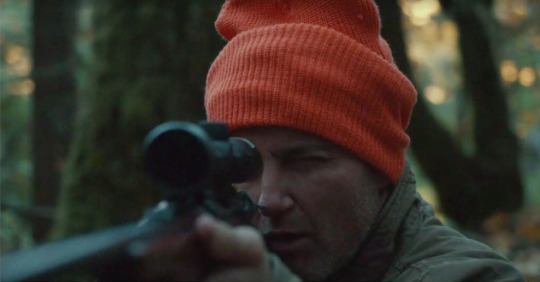
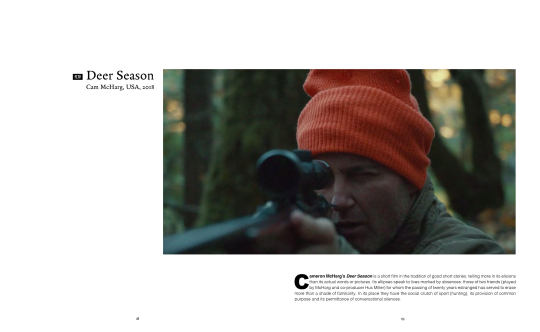
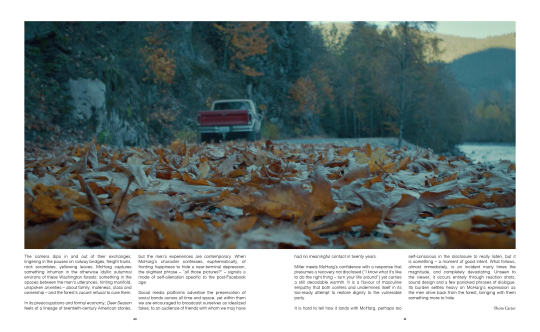
My last film (DEER SEASON) was featured in FRAME LIGHT’s British film magazine, SHORT FOCUS (Issue 2). The physical magazine comes out on January 5th, 2021 and can be pre-ordered here: www.framelight.org/magazine
“Cameron McHarg’s Deer Season is a short film in the tradition of good short stories, telling more in its elisions than actual words or pictures. Its eclipses speak more to lives marked by absences: those of two friends played by McHarg and co-producer Hus Miller) for whom the passing of twenty years estranged has served to erase more than a shade of familiarity. In its place they have the social crutch of sport (hunting), its provision of common purpose, and its permittance of conversational silences.
The camera dips in and out of their exchanges, lingering in the pauses on railway bridges, freight trains, rock scrambles, yellowing leaves. McHarg captures something inhuman in the otherwise idyllic autumnal environs of these Washington forests, something in the spaces between the men’s utterances, hinting manifold unspoken anxieties - about family, maleness, class, and ownership - and the forest’s vacant refusal to cure them.
In its preoccupations and formal economy, Deer Season feels a lineage of twentieth-century American stories, but the men’s experiences are contemporary. When McHarg’s character confesses, euphemistically, of fronting happiness to hide a near-terminal depression, the slightest phrase - “all those pictures?” - signals a mode of self-alienation specific to the post-Facebook age.
Social media platforms advertise the preservation of social bonds across all time and space, yet within them we are encouraged to broadcast ourselves as idealized takes to an audience of friends with whom we may have had no meaningful contact in twenty years.
Miller meets McHarg’s confidence with a response that presumes a recovery not discussed (”I know what it’s like to do the right thing - turn your life around”) yet carries still decodable warmth. It is a flavour of masculine empathy that both confers and undermines itself in its too-ready attempt to restore dignity to the vulnerable party.
It is hard to tell how it lands with McHarg, perhaps too self-conscious to really listen, but it is something - a moment of good intent. What follows almost immediately, is an incident many times the magnitude, and completely devastating. Unseen to the viewer, it occurs entirely through reaction shots, sound design, and a few panicked phrases of dialogue. Its burden settles heavy on McHarg’s expression as the men drive back from the forest, bringing with them something more to hide.”
Actors Awards nominee (2018) - Best Performance of the Year - Cam McHargActors Awards (2018) - Cam McHarg (Best of Fest/Best Actor)Actors Awards (2018) - Hus Miller (Best Supporting Actor)IndieFest Award of Excellence Winner (2018) - Cam McHarg (Best Actor)Independent Shorts Awards (2018) - Cam McHarg (Best Actor)Stockholm Independent Film Festival (2019) - Nominated "Best Ensemble Cast"
#film#film review#Cam McHarg#Cameron McHarg#filmmaker#director#actor#writer#producer#indie film#independent film#Deer Season#award winning#best actor#Frame Light#Short Focus#magazine#film magazine
0 notes
Link
There are just too many great people and conversations to let it disappear completely.
Since my old longstanding Facebook and Instagram accounts were hacked and deleted early this year, I've lost the accompanying T&D pages and have elected not to rebuild them, but to just keep the actual podcasts posted.
It's now up on Apple, Spotify, and Google Podcasts.
https://podcasts.apple.com/us/podcast/triumph-disaster/id1092949701
The blog/website will be up for six months and then I'll let that go, though.
www.triumphanddisasterblog.com
I might add new episodes periodically, but I'm too busy with my own personal endeavors to do it regularly for now. Enjoy!
0 notes
Photo
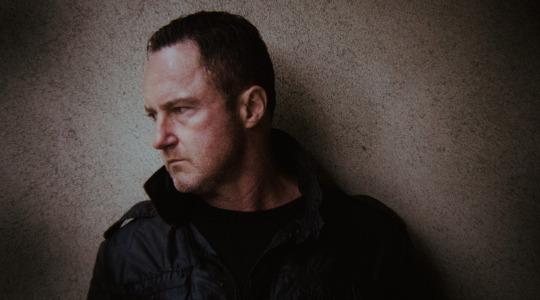
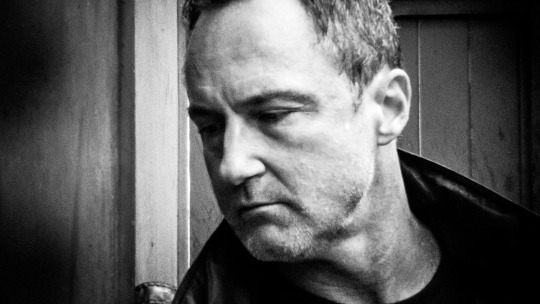
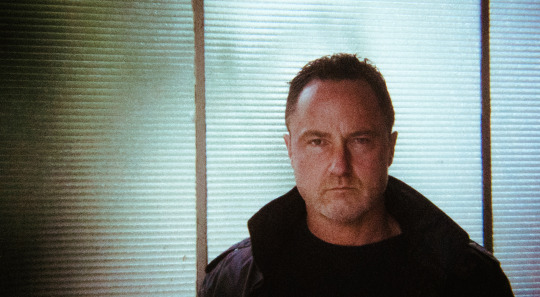
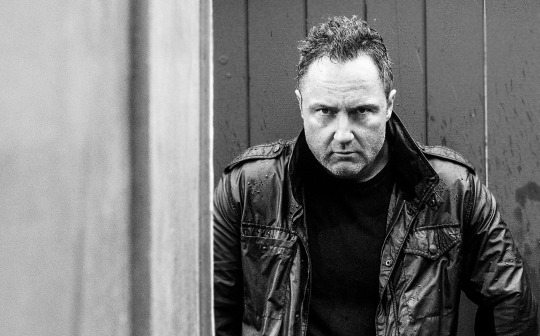
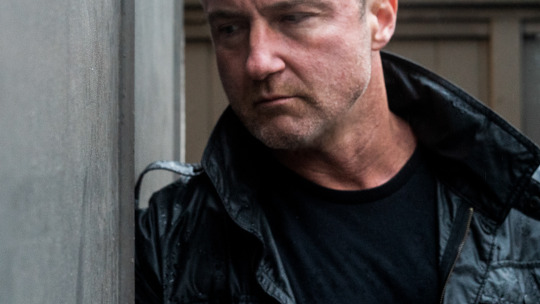
Dicking around with some vintage lenses and self portraits on a rainy day.
#vintage#holga#toy camera#leica#vintage lens#self portrait#Cam McHarg#Cameron McHarg#photography#neo noir
0 notes
Link
My photography from Chernobyl.
0 notes
Text
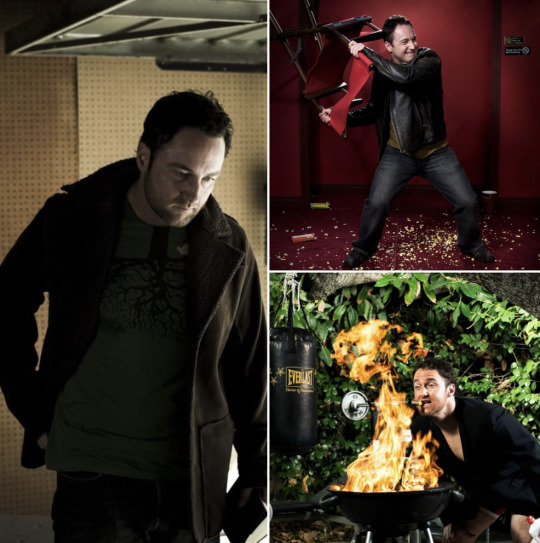

A little throwback photoshoot.
I was a film student at ArtCenter College of Design and Colin Jacob was a photography student.
These were a few of his shots he took of me that I just found from that afternoon all those years ago.
#tbthursday#cameronmcharg#cam McHarg#photography portraits photographer art creativity podcast cameron mcharg#filmmaker#actor#director
1 note
·
View note